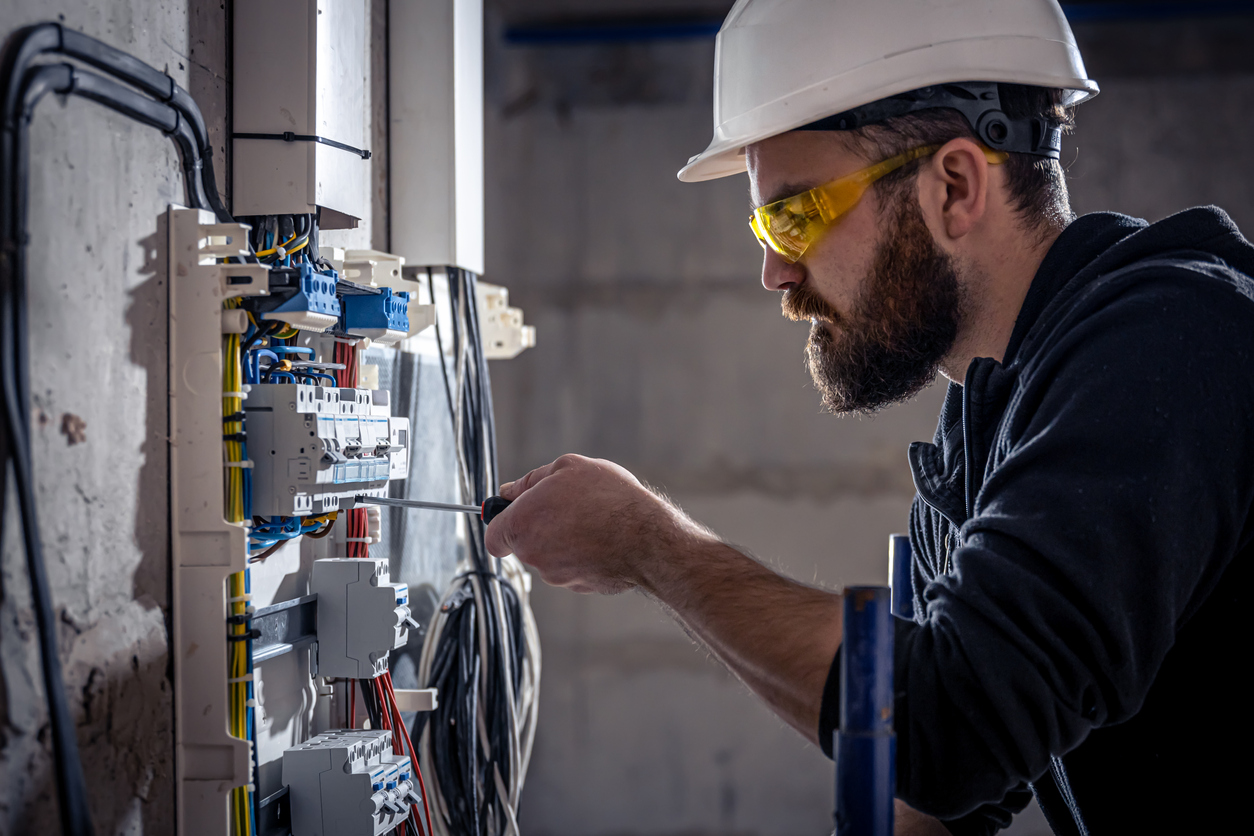If you aspire to jumpstart a career in electrical work, note that the journey is not easy. You will need to know all you can about the work electricians do that makes them important. More importantly, you must understand what skills and certifications you need to become a professional.
Top Jobs for Electricians
The technical skills you need, certifications, and responsibilities vary with the specific jobs or industry. For instance, if you decide to become a domestic electrician, your duties may include wiring homes and troubleshooting and repairing faulty household or office electrical appliances.
Here are five top jobs in Texas for electricians.
1. Master Electrician
A master electrician works in residential and commercial properties to install and repair electrical systems. This professional may also be tasked with drawing up electrical installation plans, applying for electrical permits, laying wiring, or inspecting electrical works. Other responsibilities for a master electrician may include carrying out tests on installed electrical systems and equipment for hazards, replacing electrical circuits and parts, and monitoring electrical control centers.
The scope of a master electrician’s work will largely depend on the organization they choose to work for or the projects they take on. The most notable responsibility of a master electrician is to train and supervise journeymen electricians and apprentices. While most master electricians run their own businesses or work in contracting companies, they can build a career working for a single organization.
The responsibilities of a master electrician go beyond journey-level electrical work. To have master electrical technician careers in Texas, you must have had a journeyman electrician license for at least two years. Then, accumulate up to 12,000 hours of work under a licensed master electrician.
2. Electrical Controls Technician
As the name hints, electrical control technicians primarily work on equipment controls. While they can work on various electrical devices and equipment, they mainly work in large facilities and industries.
Electrical control technicians also troubleshoot switches and wiring, install components, observe site conditions that influence electrical performance, and report findings to managers. Their day-to-day duties include monitoring, calibrating, inspecting, and repairing electrical systems for quality control.
If you land a job as an electrical controls technician, you will need to focus more on the circuitry of electrical systems above all else. Your job would demand that you master creating and reading circuit sketches, understand prototypes, and make such parts as coils and terminals work.
3. Residential Wireman
A residential electrician’s job involves installing, repairing, and maintaining electrical systems in homes and residential properties. They can be employed or self-employed professionals who work on lighting fixtures, conduits, power meters, residential alarms, and connecting residential properties to the power mains.
If you choose to pursue a career as a residential electrician, you should expect to work with contractors to plan electrical layouts for new residential projects. You should also expect to be called upon to oversee the installation of home electrical systems, including fire alarms, security and surveillance systems, and air conditioners.
To become a licensed wireman in Texas, learners must take 4,000 hours of supervised training and pass exams to demonstrate their proficiency in working with electrical systems and electrical safety protocols.
4. Journeyman Electrician
A journeyperson electrician is a licensed non-master electrician who works independently on power, lighting, and electric control systems in commercial, residential, and factory properties. These professionals are tasked with reading blueprints, checking electrical circuits and power lines, and examining wiring systems to maintain electrical systems and prevent related incidents.
The requirements to become a journeyman electrician are a little more stringent than the typical electrician. To succeed in this career path, you need to be a critical thinker who pays attention to detail. This is because journeymen electricians are expected to master all the facets of electrical work, including electrical systems, fixtures, and components.
Becoming a journeyman electrician is a tad longer than the typical electrician. In Texas, learners are required to take about 8,000 hours of studying under the direction of a master electrician and pass the required electrician exam.
5. Electrical Project Manager
The job of an electrical project manager is more demanding than it seems. This job involves overseeing the design and installation of new electrical systems, particularly for construction projects. An electrical project manager writes project proposals, draws budgets, hires contractors and other electrical technicians, and oversees their work and productivity.
The day-to-day responsibilities of an electrical project manager revolve around the project they oversee. They often need to order and receive electrical supplies, draw up work schedules, and allocate resources.
An electrical manager’s work includes a lot of paperwork. This job also requires constant collaboration with other construction initiatives and departments within the project. To build a career as an electrical project manager, choose a specialization area early on in your electrician journey.
How To Get Started in the Electrical Industry?
If you’re looking to break into the electrical industry, completing a trade program is a great way to get started.
An electrical technician training program can help prepare for entry level roles. At its bare bones, the work of an electrical technician is to install, test, inspect, and repair electrical systems, components, and equipment. Virtually every field and industry that uses electric energy in any way would need an electrical technician at some point. Indeed, from industrial construction and automotive engineering to communications and domestic technicians, electrical technicians in every industry ensure electrical and electronic devices get the right amount of electricity and work as expected.
Take the First Step Toward Becoming a Certified Electrical Technician
The occupational outlook for careers in the electrician field in Texas is quite favorable. The best way to start your career path is to take a course that trains you on the skills needed.
If you live in Texas, SCI can help you lay a solid foundation to qualify for on-the-job training hours towards Texas state licensing. Go to SCITexas.edu to learn more about the electrical technician program the institute offers.










